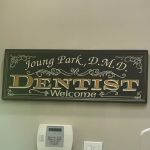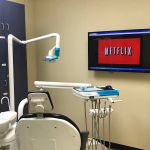Signs of Oral Herpes Symptoms and Management
- 1. What Is Oral Herpes?
- 2. Signs and Symptoms of Oral Herpes
- 3. Managing Oral Herpes Symptoms
- 4. Preventing Oral Herpes Outbreaks
- 5. When to Seek Professional Dental Care
1. What Is Oral Herpes?
Oral herpes is a common viral infection caused by the herpes simplex virus (HSV), typically HSV-1, which primarily affects the mouth and surrounding areas. It is most commonly recognized as cold sores or fever blisters that appear on the lips, around the mouth, or sometimes inside the mouth. Oral herpes is highly contagious, spreading through direct contact such as kissing or sharing utensils, drinks, or towels. While there is no cure for oral herpes, the symptoms can be managed effectively with the right care and treatment.
2. Signs and Symptoms of Oral Herpes
Recognizing the symptoms of oral herpes early can help you manage outbreaks and reduce discomfort. Common signs and symptoms of oral herpes include:
2.1 Tingling or Itching Sensation
One of the first signs of an oral herpes outbreak is a tingling or itching sensation around the lips or mouth. This often occurs before visible sores appear and can last for several hours or days. This sensation is a warning sign that the virus is becoming active.
2.2 Blisters and Sores
The most obvious symptom of oral herpes is the appearance of small, fluid-filled blisters, commonly referred to as cold sores or fever blisters. These blisters are typically painful and can appear on the lips, the inside of the mouth, or around the nose. They may rupture and crust over as they heal.
2.3 Pain and Swelling
In addition to blisters, people with oral herpes may experience pain, swelling, or tenderness around the affected area. Swelling in the lymph nodes may also occur as the body fights off the infection.
2.4 Recurring Outbreaks
Oral herpes tends to recur in the same area where the initial outbreak occurred. Stress, illness, or even exposure to sunlight can trigger recurrent outbreaks. While cold sores may heal on their own, the virus remains dormant in the body and can reactivate later, often when the immune system is compromised.
3. Managing Oral Herpes Symptoms
While there is no cure for oral herpes, symptoms can be managed effectively with both home remedies and professional treatments. Here are some common approaches for managing the symptoms:
3.1 Antiviral Medications
One of the most effective ways to manage oral herpes is through antiviral medications prescribed by a healthcare provider. These medications, such as acyclovir, valacyclovir, and famciclovir, can help reduce the severity and duration of outbreaks. They are often prescribed for both active outbreaks and to reduce the frequency of recurrent episodes.
3.2 Over-the-Counter Treatments
Over-the-counter creams or ointments, such as docosanol (Abreva), can be applied directly to the cold sores to reduce pain and speed up healing. Pain relievers like ibuprofen or acetaminophen can help alleviate discomfort caused by sores or swelling.
3.3 Home Remedies
In addition to medical treatments, several home remedies can offer relief. Applying ice to the cold sores can reduce inflammation and numb the pain. Aloe vera gel or witch hazel may also help soothe the affected area. Some people find relief from using lip balms with sunscreen, especially if the outbreak is triggered by sun exposure.
3.4 Keep the Area Clean and Dry
It is essential to keep the affected area clean and dry to avoid further irritation or infection. Avoid picking at the sores, as this can worsen the condition and spread the virus. Gently wash the area with mild soap and water, and use a clean towel to dry it off.
4. Preventing Oral Herpes Outbreaks
While it is impossible to completely prevent oral herpes outbreaks, there are several strategies that can help reduce the frequency and severity of flare-ups:
4.1 Avoid Triggers
Identifying and avoiding triggers that activate the herpes virus is key. Common triggers include stress, illness, sunlight, and hormonal changes. Taking steps to manage stress through relaxation techniques like meditation, yoga, or deep breathing can help reduce the likelihood of outbreaks.
4.2 Practice Good Hygiene
Good hygiene practices, such as washing your hands frequently, can help prevent the spread of oral herpes to others. Avoid kissing others or sharing personal items like towels, lip balm, or eating utensils during an outbreak.
4.3 Use Lip Protection
During sunny or windy weather, use lip balm with sunscreen to protect your lips from sunburn, which can trigger an oral herpes outbreak. Applying sunscreen regularly to your face can also help prevent sun-induced flare-ups.
5. When to Seek Professional Dental Care
While most cases of oral herpes can be managed at home, there are times when you should seek professional dental care. If your cold sores become unusually large, painful, or last longer than two weeks, it’s essential to visit a healthcare provider. Additionally, if you experience difficulty swallowing or your symptoms worsen over time, professional treatment may be required.
For long-term management and to prevent recurring outbreaks, it’s important to discuss treatment options with a dentist or healthcare provider who specializes in oral health. Regular dental checkups can help monitor the condition and ensure optimal care.
If you're looking for more information on managing oral herpes or need professional care, [Family Dentistry Online] offers expert resources, products, and services to help you maintain oral health and prevent future outbreaks.







 Coast Dental4.0 (514 review)
Coast Dental4.0 (514 review) Ryan L. Lindner, DDS0.0 (0 review)
Ryan L. Lindner, DDS0.0 (0 review) Park Family and Cosmetic Dentistry5.0 (51 review)
Park Family and Cosmetic Dentistry5.0 (51 review) Pediatric Dentistry of Cape Coral4.0 (178 review)
Pediatric Dentistry of Cape Coral4.0 (178 review) Sylmar Dental & Braces5.0 (111 review)
Sylmar Dental & Braces5.0 (111 review) Mohn Family Dental4.0 (43 review)
Mohn Family Dental4.0 (43 review) The Importance of Oral Health Education During Pregnancy for a Healthy Pregnancy
The Importance of Oral Health Education During Pregnancy for a Healthy Pregnancy Best Tips for Brushing Your Teeth Properly for Healthy Gums: Essential Techniques for Oral Health
Best Tips for Brushing Your Teeth Properly for Healthy Gums: Essential Techniques for Oral Health Why Skipping Dental Checkups Can Lead to Bigger Oral Health Problems
Why Skipping Dental Checkups Can Lead to Bigger Oral Health Problems Advantages of Porcelain Dental Restorations
Advantages of Porcelain Dental Restorations How Can Diabetes Cause Tooth and Gum Problems? Preventing and Managing Oral Health Issues
How Can Diabetes Cause Tooth and Gum Problems? Preventing and Managing Oral Health Issues Healthy Habits for Promoting Good Oral Health and Hygiene: Tips for a Healthy Smile
Healthy Habits for Promoting Good Oral Health and Hygiene: Tips for a Healthy Smile